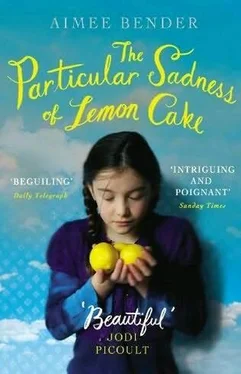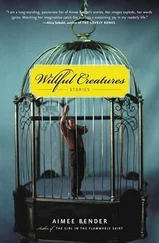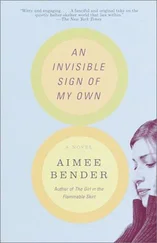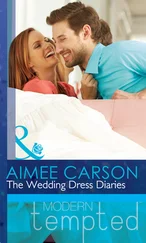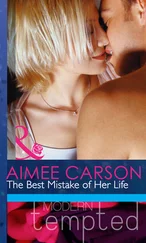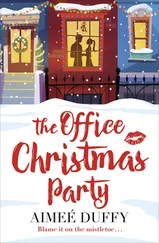Dad? I said, looking up, after writing in the five reasons that the gold rush built up the Californian economy.
Yes?
Where’d Mom go?
On errands.
When will she be back?
Soon, he said. I imagine by ten, at the latest.
Dad? I said.
He raised his eyebrows again. Yes, Rose?
Never mind, I said. Nothing.
He continued his work. I finished up my assignment and went ahead to the next chapter, since our teacher did not believe in homework variety and gave us the identical task for each week. The clock ticked along.
After another while, I looked up again. Across from me, in the red ledger, my father had written many neat new numerical rows. It seemed he was getting more work done too.
Can I ask you a question? I said.
He kept his eyes on the page, deep at the base of the latest column. Then laid down the pencil.
Knock yourself out, he said.
The couch creaked as he resettled himself. It was an open doorway. I could hardly remember the last time I’d sat across from my father without anyone else nearby. I really had no idea what to ask, so I just blurted out the first thing that came into my head.
Did you ever know something? I said.
Excuse me?
I took a breath. Sorry, I said. I mean, did you ever know something you weren’t supposed to know? I asked.
He tilted his head. What do you mean?
Like-did you ever walk down a hall and accidentally overhear a secret?
He thought about it, for a minute. No, he said. Why?
What if you did?
I’d keep the secret, he said.
I shifted around in my seat. Okay, I said. Okay. Or, just do you have any special skills?
He chuckled a little. No, he said.
I didn’t mean that you don’t, I mean-
No, really, he said. He turned to me fully, and his face was friendly. I hit the mean all through law school, he said. I scored exactly in the fiftieth percentile on the LSAT. Five oh. He nodded at himself, pleased.
I closed my textbook.
But you were in Briga -I said.
Doon , he said. I was a perfectly average singer, he said. Even the teacher said so.
You hate hospitals, I said.
So?
I don’t know, I said, pulling at the corner of my textbook. Why do you hate them?
That’s not a special skill, he said.
No, I said, waiting.
He re-shaped the pillow at his back. Show previews skimmed across the screen, advertising our favorite high-intensity medical program, which was coming up soon.
I just don’t like sick people, he said.
Is it because you feel something?
What?
Like you feel their sickness, or something?
He scratched his nose. He looked at me a little funny. No, he said. I just don’t like them. How do you know about that anyway?
Was he kidding? The TV switched to commercials, of dancing kids on tree-lined streets.
Mom tells our birth stories all the time, I said. How come you can watch it on TV?
He waved his hand at the screen. Oh, that’s different, he said. That’s fun.
It’s in a hospital, I said.
It’s a set, he said.
I think it’s set in a real hospital, I said.
Doesn’t matter, he said. No smell.
But what if you get sick? I said.
I never get sick, he said.
He picked up the remote. Twirled and twisted it, on the sofa. The questions were drumming in me, piling on each other, and I dug deeper into my end of the sofa and tried to remember how George did it, at the dinner table. Softly, as if the answer was not dire. As if the question was a seed placed a few feet in front of a curious bird.
You never get sick? I said, after a pause.
Dad glanced back over. Wiggled his feet.
I just have healthy genes, he said, lifting his shoulders. Always have. All that good Lithuanian chicken.
We stared ahead, together. I picked at the corner of my textbook where the lamination had broken open, revealing the soft layers of brown cardboard.
Would you visit if I have to go to the hospital sometime? I said.
He flapped a hand at me. You’re a healthy kid, he said.
But just in case, I said. If it’s serious?
Hasn’t been, he said.
But if it was?
He looked over at the clock, blinking greenly at the base of the TV. In two minutes our show would come on.
I, he said.
His eyes on the clock.
Might, he said.
His hand rested in the fold of the red ledger. Colors scattered across the screen.
There was nothing much else to say, so we watched the series of car commercials flying by. According to the ads, the first car made you manly, the second made you rich, the last one made you funny.
I pointed out a zippy yellow hatchback driven by a clown. I didn’t really like it so much one way or another, but I just needed something to do. Dad peered at the picture. Then he turned to a blank page in his ledger, jotted down the name of the car, and wrote my name, with a precise little arrow pointing to it.
You’re not so far from sixteen, he said.
He pressed the mute button, and the room filled with sound. Horns, voice-overs, snatches of songs. It was like we were exchanging codes, on how to be a father and a daughter, like we’d read about it in a manual, translated from another language, and were doing our best with what we could understand. Thanks, Dad, I said. The commercials ended, and the show began with a couple of nurses bustling through an ER. A man had a seizure on the tile. Someone yelled through the intercom. I got pulled into the story, and so at first I didn’t hear when he said my name at the break.
For you, Rose? he was saying. For your birth?
When I turned, his face was closer than usual, and I could see the slight strain in the lines above his eyebrows. The quiet urgency in whatever he wanted to tell me.
Yes? I said.
His hand hovered in the air.
For you, he said, I brought binoculars.
Mom came home right as the TV show ended. Ten p.m., on the dot. We heard the car in the driveway, and then the key in the lock, and she breezed into the room with a shine to her cheeks I couldn’t look at. I looked at my father instead, to see if he saw any of it, but he was half caught in the images flashing by of another car, a fourth car, one that made you perceptive, a car he probably should buy, and he saluted my mother from his spot on the couch and asked how the errands had gone.
Great, she said. Fine. Rose, you’re still up? How was the show?
What errands did you run?
All sorts, she said, brushing a wisp of hair out of her eyes.
Where are the bags? I said.
Oh, she said, waving her hand. In the car, she said.
She winked at me again.
Time for bed, I said, before she could.
Come sit, said my father to my mother, patting a couch cushion.
I left the room.
That night, as I burrowed into the sheets, my mother still tucking in sheets better than anyone, I closed my eyes and went through my usual routine, which involved thanking God, or the mysterious bounty of the world, for the vending machine at school, for the sad lady with the hairnet who still worked at the cafeteria, for the existence of George, and for whoever ate my mother’s cookies at the co-op. It was my usual routine, so it took a second for the change to sink in, and then I shook awake, pressed into my pillow: Larry, rising, Larry , the likely man who saved me from eating her cookies, the man I’d been praying a thank you to for the last almost four years as Mom brought tray after tray of baked goods to the studio. Joseph! I said, knocking on the wall we shared. I said it loud. I knocked again, rapping my hand hard on the wall. To wake him up, from whatever deep state of study he was in. I kept knocking.
After ten minutes, he strode into the room in his pajamas. What, he said.
Читать дальше
